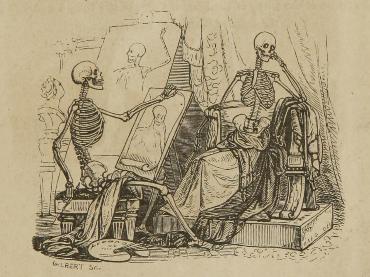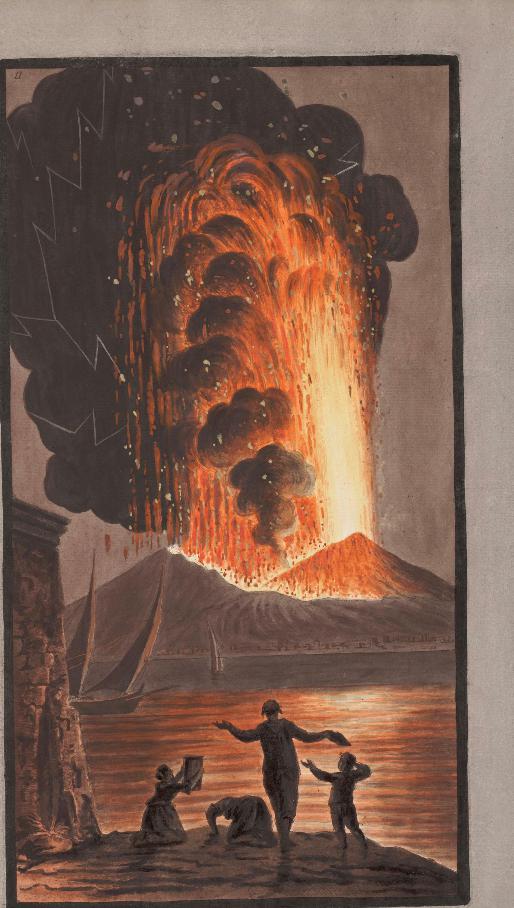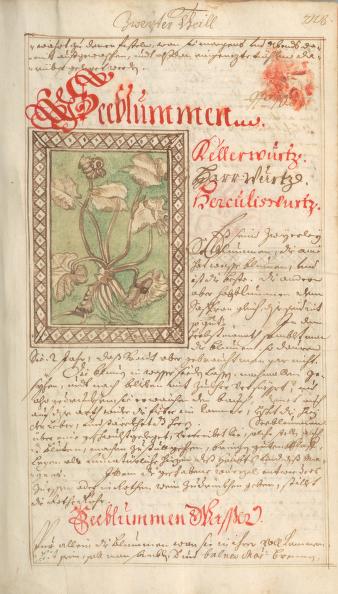You’ve got exactly a month (and a few hours) from today to get in your application(s) for the 2019 MHL fellowships!
You’ve got exactly a month (and a few hours) from today to get in your application(s) for the 2019 MHL fellowships!
You’ve got exactly a month (and a few hours) from today to get in your application(s) for the 2019 MHL fellowships!
We’re looking for one or more fellows to join us working on projects during the summer of 2019. Please share this post widely!
DESCRIPTION:
Hosted by one of our member institutions in New York, Boston, New Haven, Philadelphia, or San Francisco, the fellow will develop a user-friendly web interface and author supporting workflows to make MHLonArchiveSpark functionality more broadly accessible to researchers and better facilitate: 1) using the MHL’s Advanced Search Tool to identify a set of texts meeting user criteria and retrieving all of them from the Internet Archive and 2) using ArchiveSpark to extract the full text of a results set (including metadata) for the purpose of performing additional queries against that set. ArchiveSpark is an open source Apache Spark framework for data processing, extraction, and derivation for Web archives and archival collections developed by the Internet Archive and L3S Research Center.
Additional products of this project could include creating a number of canned recipes for searching content using MHLonArchiveSpark and considering new approaches to making extraction and analysis easier.
For more information about ArchiveSpark, visit the following:
The fellowship is paid and may be taken for course credit.
DUTIES AND RESPONSIBILITIES:
QUALIFICATIONS AND EXPERIENCE:
This position is open to all qualified graduate students with a strong interest in the digital humanities and computer science, including API development, with additional interests in library/information science or education. Strong communication and collaboration skills a must. Fellows are expected to learn quickly and work independently.
QUALIFICATIONS AND EXPERIENCE:
This position is open to all qualified graduate students with a strong interest in medical or health history, with additional interests in library/information science or education. Strong communication and collaboration skills a must. Fellows are expected to learn quickly and work independently.
FELLOWSHIP DURATION:
The fellowship will take place anytime between the end of May 2019-mid-August 2019
HOURS:
20 hours per week, over 12 weeks.
SALARY:
$20/hour
To apply, please provide the following:
Cover letter documenting interest in position
Curriculum Vitae
2 References
Please submit your application materials by April 1st, 2019 to:
Attn: Fellowship committee



Are you looking for a way to access the millions of images locked within our hundreds of thousands of books? Recently, the Medical Heritage Library Inc. began reaping millions of images from books and journals in our online collection and providing in-depth book level metadata to these images via Flickr: http://www.flickr.com/photos/mhlimages/.
Once you select an image, you have the ability to click a link taking you back to the page in the actual online book for context. By scrolling down, you’ll discover links that allow you to:
“See all images from this book”
“See all MHL images published in the same year”
“See all images from [Contributing] Library”
Despite the massive swell of digitized texts over the past twenty years, systematically unlocking images in a large corpus of books with enough metadata to provide some basis for analysis has been a challenge. The ability to find and analyze images is on the wish list of many of the researchers using the MHL. While the metadata helps connect researchers to the actual book, the MHL at this point lacks the ability to provide a way for researchers to search for individual images within this massive corpus. We invite you to tag the Flickr images, but we are working with colleagues on a new program that will help batch tag and sort millions of images based on machine reading and recognition. We also recognize that our images filters do not always keep “visual junk” out, so please be patient as we work out the bugs. Stay tuned!
~Courtesy Beth Lander, College Librarian, Historical Medical Library, College of Physicians of Philadelphia.
The College of Physicians of Philadelphia has been awarded a $240,000 grant from the Council on Library and Information Resources (CLIR) to digitize 150,000 pages of primary sources related to the history of medical education.
This project, titled For the Health of the New Nation: Philadelphia as the Center of American Medical Education, 1746-1868, will digitize, describe, and provide access to lecture tickets, course schedules, theses, dissertations, student notes, faculty lectures notes, commencement addresses, opening addresses, and matriculation records, sharing not only the voices of the medical greats, but also the often unheard voices of students. Because of physicians’ flow between institutions across the city, this project would allow physically siloed material to be viewed and analyzed in one place for the first time.
Project partners for this initiative are The College of Physicians of Philadelphia; The Legacy Center, Drexel University College of Medicine; University of Pennsylvania Libraries; Pennsylvania Hospital Historic Collections; The Library Company of Philadelphia; American Philosophical Society; Thomas Jefferson University Archives and Special Collections, and PACSCL.
The Council on Library and Information Resources (CLIR) announced the award on January 3, 2019 of over $3.8 million to fund 17 projects for 2018 Digitizing Hidden Special Collections and Archives awards.
~Courtesy Carrie Levinson, Reference Services and Outreach Librarian
The New York Academy of Medicine is pleased to announce the newly digitized William S. Ladd Collection of Prints. This collection consists of 671 prints, primarily portraits, dating from the 17th century through the early 19th century, showcasing many of the formative authors and thinkers of these years. The digitization of this collection also provides an opportunity for researchers, conservators, artists, and the general public to explore early print technology from any web-enabled device. This project was completed with the help of funds from the Metropolitan New York Library Council (METRO) through the New York State Regional Bibliographic Databases Program.
To learn more, check out this blog post by our Head of Digital, Dr. Robin Naughton, explaining the process and providing examples of the material in the collection: https://nyamcenterforhistory.org/2018/12/19/digitizing-the-william-s-ladd-collection-of-prints/
Welcome to 2019 and we hope you all had a lovely winter break (that is assuming you had one, of course) and are back and ready to stare down January.
We’re switching to a new posting schedule starting right now! We’ll be putting up fresh content here on the blog on Tuesdays and Thursdays. If you are interested in writing for us, please get in touch via comment or email (medicalheritage (at) gmail (dot) com). We’d love to hear your ideas.
We’ve added quite a lot of new material lately, including our first medieval manuscripts! Check out everything (sorted by date added to the collection) here.
We’d like to wish all our readers and users a happy end of 2018 and a good beginning to 2019 — we’ll be back with fresh content in January!
We’ve got 269,122 items in the MHL and the number is growing every day! Here are some of our latest additions:
Check out all our latest additions here!
~This post courtesy Polina Ilieva, Head of Archives and Special Collections, University of California, San Francisco.
The Archives and Special Collections department of the University of California, San Francisco (UCSF) Library is pleased to announce the award of a $99,325 “Pitch-An-Idea, Local” grant for the first year of a two-year project from the Institute of Museum and Library Services’ (IMLS) Library Services and Technology Act funding administered through the California State Library. The Archives will take the nearly 200,000 pages of textual HIV/AIDS historical materials which have been digitized as part of various digitization projects — including the National Historic Publications and Records Commission (NHPRC)-funded project, “Evolution of San Francisco’s Response to a Public Health Crisis;” and the National Endowment for the Humanities (NEH)-funded project, “The San Francisco Bay Area’s Response to the AIDS Epidemic” — and will extract unstructured, textual data from these materials using Optical Character Recognition (OCR) and related software. The project team will prepare the text as a research-ready, unstructured textual dataset to be used for digital humanities, computationally driven cultural heritage, and machine learning research inquiries into the history of the HIV/AIDS epidemic.
The 24-month project, entitled “No More Silence — Opening the Data of the HIV/AIDS Epidemic” has commenced as of July 1, 2018. The digitized materials from which text will be extracted include handwritten correspondence, notebooks, typed reports, and agency records which represent a broad view of the lived experience of the epidemic, including documentation from People with AIDS and their friends, families, and scientists and public health officials working to slow the epidemic. All historical materials represented in this dataset have been previously screened to address privacy concerns. The resulting unstructured, textual dataset will be deposited in the UC Dash datasharing repository for public access and use by any interested parties, and will also be deposited in other similar data repositories as appropriate. “During my tenure at UCSF,” says health sciences historian and professor in the Department of Anthropology, History, and Social Medicine at UCSF, Dr. Aimee Medeiros, “I have been inspired by the library’s enthusiasm and dedication to public access and the use of practices in the digital humanities to help maximize access to HIV/AIDS material.” This project will build on that legacy by bringing these valuable historical materials into the realm of digital humanities and scientific research and making them computationally actionable.
Please find a full summary of the project on our blog, here. We are always interested in hearing from colleagues involved in similar work. For inquiries contact University Archivist Polina Ilieva or Digital Archivist Charlie Macquarie.